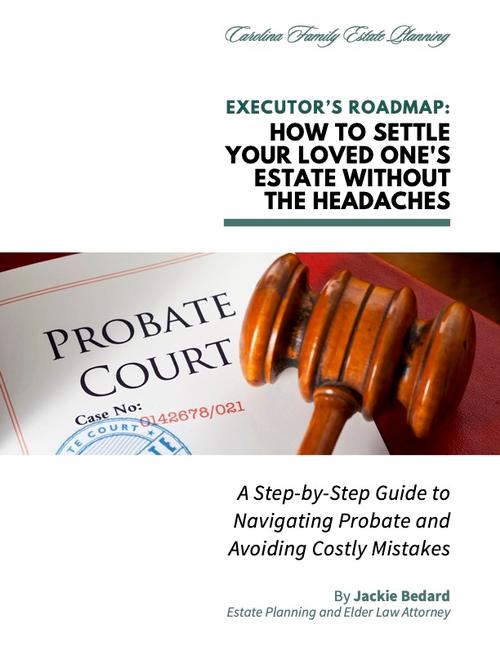When we think about handling the affairs of a loved one after they’ve passed away, our minds often jump to the more emotional aspects—grieving, remembering, and celebrating their life. But there’s a surprising truth that many families discover too late: real estate can be one of the trickiest assets to manage after death, especially in North Carolina. Imagine being in a situation where you’re grieving and suddenly find yourself entangled in legal questions about deeds and property ownership that you never anticipated. It’s a reality that catches many off guard.
Table of Contents
“Who Owns the Property Now?”—Understanding Deeds and Ownership

In North Carolina, when a resident passes away, the ownership of their real estate doesn't just hang in limbo. The new owner of the property might already be listed on the deed, they could be named as a beneficiary in the Will, or they could be determined based on state statutes if there’s no Will in place. This sounds straightforward, but here’s the catch: every situation is different, and what’s on paper isn’t always clear. Our North Carolina probate and estate administration lawyer explains more below.
Key Considerations:
- Is There Another Name on the Deed? If a surviving person’s name is already on the deed, you might be in luck—no new deed may be necessary, and estate administration could be minimal. But if not, you could be looking at a more complex process.
- Who Are the Beneficiaries? Whether the property goes to someone in the last Will or via state laws, the process can be complicated by other factors, like mortgages or disputes among family members.
- Is There a Mortgage? Debts and encumbrances on the property can complicate the process, adding layers of legal challenges.
- Is the estate insolvent? Debts of the estate can also throw a wrench into what happens with the property. In some situations, an executor may be required to sell the real estate and use the proceeds to settle the estate's debts.
“Do I Need a New Deed?”—When Legal Assistance Becomes Essential
The question of whether a new deed is needed isn’t one-size-fits-all. The answer depends on several factors, many of which aren’t immediately obvious. Is the caller the only person entitled to the property? Are there other debts that could complicate the transfer? Is the property going to be sold soon? These are just a few of the considerations that must be addressed before a new deed can be drafted.
The Role of Legal Expertise:
- Determining Necessity: Our experienced probate team evaluates each case's unique circumstances to determine whether a new deed is necessary.
- Comprehensive Support: We don’t just prepare deeds as a standalone service. Instead, we provide this service as part of a broader estate planning or administration process, ensuring that everything is handled comprehensively.
“What’s the Next Step?”—How We Can Help You
When a loved one passes away, the last thing you want to worry about is the complex legal puzzle surrounding property ownership. That’s where we come in. Our team is here to guide you through the process, ensuring that you don’t have to navigate these tricky waters alone.
Call Us to Discuss Next Steps: If you’re unsure whether you need a new deed or if you have any other estate-related legal questions, we’re here to help. Call us now at 919-586-8222 to discuss the next steps and to schedule a meeting.
Navigating the aftermath of a loved one’s passing is never easy, but with the right support, you can handle even the most complicated situations with confidence. Let us help you take the next step.


